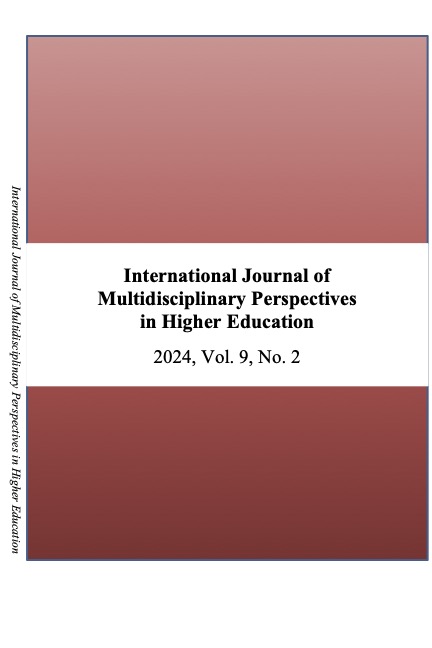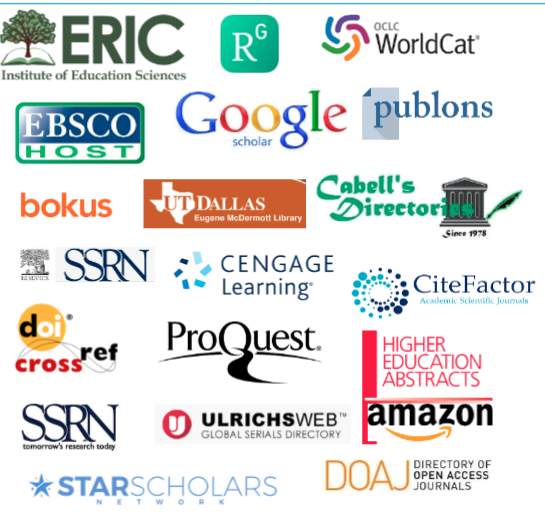|
|
*in review
Vision behind the Journal
This journal is driven by an ethical view of scholarship: we want to create an inclusive space for educators around the world to share ideas both across the fields of knowledge and across cultural/geopolitical borders, measuring quality not so much by competition and rigor defined locally but more so by considering the local social value of each work, diversity of voices/perspectives included in an issue, inclusiveness through recognition of diverse approaches/definitions of scholarship. Unlike conventional journals that tend to exclude work which don't follow norms and demands of one dominant context and scholarly community, this journal seeks to include scholarship on higher education (teaching, research, policy) by scholars from different backgrounds by assigning separate mentoring/support where needed, while also maintaining rigor through the standard double blind peer review process.
First, this journal facilitates academic conversation across contexts and cultures by using a process that is inclusive and supportive, rather than exclusive and judgmental. The traditional process of scholarship/publication discourages the majority, doesn’t allow interaction, takes too much time, assumes too little space, doesn’t inspire those who are outside of small groups at the centers. That idea of process where everyone needs to conform to one set of standards doesn’t sit well with today’s reality or necessity anymore. Nor does the idea of complete anonymity between reviewers and writers; in spite of its benefits, this view doesn't lend itself well to situations where reviewers may misunderstand writers' contexts, perspectives, and value systems.
To make the review process supportive, we use mentor reviewers where adding this layer to the background of the standard review process could help scholars better communicate their ideas across cultures: in addition to assigning manuscript submissions to anonymous peer reviewers, we connect the authors to an extra reviewer who is willing to spend a little more time and help the writer (using feasible medium of interaction) to bring out their best on their own terms. The review process is based on the idea that knowledge is best generated through interaction and sharing. Instead of trying to maintain a "community of discourse," with insiders demanding outsiders to gradually become legitimate/assimilated, we seek to create a crossroads where interaction happens, people learn and change, and conflicting views and values are viewed as productive. We believe that gated communities should be left behind in favor of moving towns, as if on water, or up in the air—communities, of course, but difficult and unnecessary to situate within physical or ideological boundaries. We want to replace rejection with participation, contribution, sharing, and inclusion. We find this more possible, even more necessary and beneficial in both interdisciplinary and transnational contexts.
That is not to say that the alternative to the assimilationist, exclusionary gatekeeping regimes is to throw its babies with the bathwater. Instead, we put in place a review process that responds to and promotes diversity and variations. In order to create and take advantage of transnational and cross-cultural opportunities for scholarly conversation, we include some writing that may seem less polished than others, as when we see thoughtful content that we don't want to force into method, organization, and style that are familiar to readers in one culture or context. We believe that if our readers want to learn about different issues from different contexts and through different perspectives, they must also learn to appreciate writing that doesn't conform to their local tradition or expectations. To benefit from cross-contextual communities of writers, we must learn to appreciate work of authors who are more and less familiar with dominant conventions, who want to use their own local conventions, and whose approaches and styles we may not understand at first. Thus, as editors and reviewers, we don't seek to only include perfected writing, or ideas that convince the editors, or perspectives that the reviewers find valuable; indeed, we have guidelines that seek to counter these tendencies. In transnational and cross-cultural contexts, valuable scholarly conversations can only happen when we stop being afraid of language variations and stop trying to find and enforce universal norms, instead seeking out difference, dissonance, and variety of languages and ideas and styles and perspectives.
Theoretically speaking, we value and maintain quality but we define and approach it differently. Conventional scholarship views quality by prestige and, too often, prestige by the ratio of rejection to acceptance. Journals value rigor in process and polish in product, but they often do that to the detriment of fair and productive exchange of ideas. On the one hand, their intolerance to variation of language, style, and organization excludes those who cannot/do not adhere to the standards set in a certain context or culture. On the other, even when they can meet all the external conditions, authors from outside the mainstream cannot “join the conversation” because they haven't read and cited the expected sources, employed the right research method, used the latest (meaning latest for a certain community) theories and frames of reference. Where rejection is touted as if it is a virtue unto itself, most outsiders don't stand a chance.
We believe that quality can and should be defined in terms of meaning and value to readers and writers. For instance, a Chinese bioengineering professor may find the most relevant ideas for teaching her students in the writing of another teacher who works in the same town, or that of a fellow teacher in Brazil because of similar challenges, but in both those cases, the writing be done in less than perfect English, say, compared to a third writer from Canada. So, we strive to define quality by relevance and value to readers within or across context and by our desire to create opportunities for writers who are conventionally left out. (Here is an article the issue of quality is discussed, among others.)
We also see quality in variety, sharing, and interaction. We are inspired by the fact that communities of teachers and scholars around the world can now contribute their ideas and experiences instantly and abundantly. Where there are shared interests, if we focus on opportunity and sharing (rather than gatekeeping in the name of quality), we can publish and promote widely different ideas and perspectives from communities of scholars around the world. But in order to include contributions from many backgrounds, we must learn to let scholars contribute on their own terms. Even though we must make writers aware that they will be read by colleagues in a variety of other contexts, that goal cannot and should not be achieved by imposing any universal set of styles, conventions, and approaches of creating and sharing knowledge. If knowledge-making and knowledge-sharing is diverse across disciplines and professions, no good can be achieved by pretending that we can find universal agreements even within the same disciplines. For scope and reach of ideas and participation to define quality, we need to stop trying to maintain the regime of rejection and start contributing to a new paradigm of acceptance, engagement, and encouragement. Promoting participation and contribution, engagement and exchange of ideas, doesn't however mean that we must give up on quality (as in clarity of ideas and accessibility to readers) that conventional scholarship aimed to achieve (but created other problems in its name). It means that we must be flexible and open-minded, willing to err and learn, appreciative of diversity and complexity.
Similarly, while we are sensitive to context, we believe that scholarly conversation does not have to be context-bound in order to be useful and effective. Knowledge and its production and dissemination has opened up new paradigms of the "context-crossing." This new condition often demands a radical rethinking of the process, product, and value of scholarship such as journal articles and its variant/emerging forms. This is not to say that context-crossing production and communication of knowledge must entirely replace the conventional context-bound form; but the nature and process of knowledge-production, dissemination, and use become different when they cross contexts. As such, a journal editor based in Japan who wants to publish the work of a Brazilian scholar by asking US-and India-based reviewers to provide feedback must use a different approach and cultivate a different mindset. The editor, reviewers, and readers must learn to appreciate the writer's ideas, methods, perspectives, and values; the writer should not be held solely responsibility to fulfill the demands of the other parties. In particular, the editor and reviewers cannot assume a “universal” set of norms for the "academic article"; that is utterly naive and counterproductive in terms of creating useful scholarly conversations in any discipline (including in “hardcore” science). The contexts and applications, the needs and interests, the terms and perspectives from which an issue is viewed (even in science) by the different parties involved will be different. And if one party tries to enforce its norm, however universal it may seem, no context-crossing communication can happen; instead, the attempt will stifle knowledge and obstruct productive exchange of it. Rejection and misunderstanding will ensue.
We do use guidelines to help writers make their writing accessible to diverse audiences and help reviewers best support writers. We use guidelines to make contribution and conversation more inclusive. We are aware that attempts at inclusiveness may water down quality but we also know that the same attempts can also open new doors. A new voice may be heard, a new perspective available for others. Someone with a new idea might quickly improve their style of writing, organization of ideas, or use of research method -- on their own terms. Someone writing with some difficulty in a foreign language at first may polish it while sharing their ideas. As likely, however, readers who have not yet learned to appreciate good ideas in a different variety of English may come to do so in the same process. They will benefit from certain aspects of the writing even when others are less than perfect.
Finally, we use the affordances of the web to include greater amount and variety of work. While we put all submitted works through editing and proofreading, we do not reject work merely because it is rough around the edges--as long as it presents a different idea or perspective, promotes a cause or makes new connections, inspires readers or starts new conversation. Instead, we offer writers the opportunity to publish less developed or thought-through work on the blog, which is an extension of the journal. And we also make print articles available on the site, letting readers comment on those articles as well. We encourage writers to respond to reader questions and comments.
We welcome you to contribute your work, to help with review and mentorship, and to join the conversation. If you have any questions, please email at jimphejournal@gmail.com.






